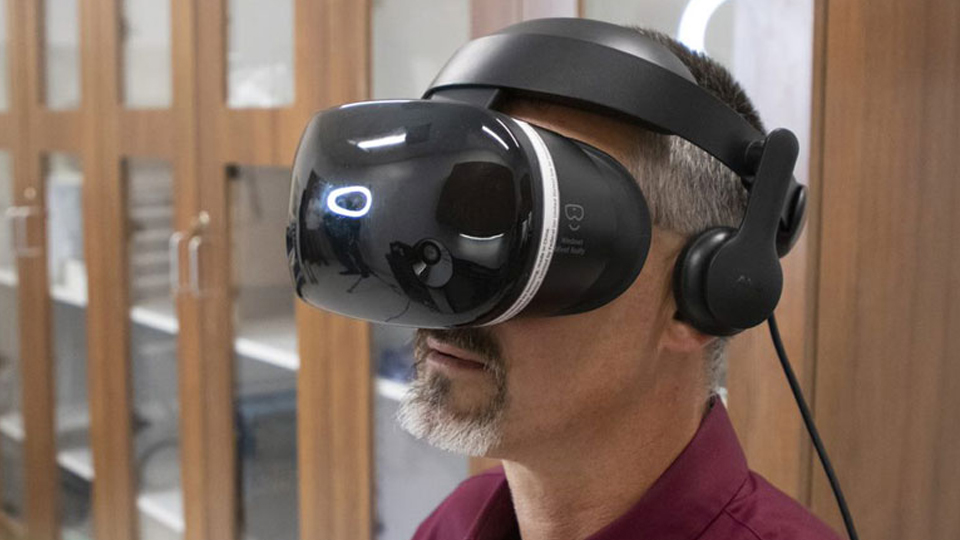IU researchers test VR to treat substance use disorders
Subscriber Benefit
As a subscriber you can listen to articles at work, in the car, or while you work out. Subscribe Now
Researchers from Indiana University are using virtual reality technology to create a new therapy for people with substance use disorders. The team has built a virtual environment using “future-self avatars” to help people recover from substance use disorders. The researchers received nearly $5 million from the National Institutes of Health and launched an IU-affiliated startup to test and further develop the technology.
In an interview with Inside INdiana Business, IU School of Medicine Assistant Professor of Pyschiatry Brandon Oberlin said participants in a pilot study had a positive experience.
“We also found that it did increase their delayed tolerance and, in fact, doubled it,” said Oberlin. “Comparing their decision-making – small and medium versus larger delayed rewards before the experience and then after the experience – we found a near doubling of delayed tolerance, which is a pretty big effect. What we found was that not everyone experienced gains in future-self similarity, but the majority did and of those, zero of them relapsed.”
Oberlin says the ultimate goal is to leverage the VR technology to provide therapeutic experiences to support early recovery, which typically has a high risk for relapse.
The NIH funding will support clinical trials, which are designed to test for efficacy on relapse prevention, brain activation and other elements related to substance use disorder treatment.
Oberlin says one study will offer virtual reality experiences remotely via wireless headsets for participants to use at home, which can help address a need for those who are unable or unwilling to engage in an in-person clinical setting.
“This experience enables people in recovery to have a personalized virtual experience, in alternate futures resulting from the choices they made,” Oberlin said. “We believe this could be a revolutionary intervention for early substance use disorders recovery, with perhaps even further-reaching mental health applications.”
Oberlin says he wants to be careful not to present the technology as a cure for substance use disorder.
“How could it be a useful tool, an adjunctive or an addition to existing therapies like psychotherapy, like support groups, licensed therapists?” said Oberlin. “We can do the impossible with virtual reality. The impossible is to animate a person and have them speak to oneself. Virtual reality gives us that power. And its something that you cannot do in a laboratory or in a therapist’s room with another person.”
Oberlin has co-founded Relate XR LLC along with Andrew Nelson, an IU alumnus and CEO of Indianapolis-based virtual reality startup Half Full Nelson. IU says Relate XR will work to advance development of the technology toward commercialization.
Oberlin says he hopes his research will result in a product that can be used by professionals, whether individual therapist offices or in a larger-scale setting, to help inform and treat people living with substance use disorder.
